
There Will Be Repercussions: The West is Collectively Responsible for Israel’s Genocide in Gaza
On October 20, Secretary-General of the United Nations, Antonio Guterres, stood on the Egyptian side of the Rafah crossing, between Egypt and besieged Gaza.
Guterres was not the only international figure to travel to the Gaza border, hoping to mobilize the international community in the face of an ongoing genocide, in an already impoverished and besieged Strip.
“Behind these walls, we have two million people that is suffering (sic) enormously,” Guterres said.
These efforts, however, paid little dividends.
The spokesperson for the Ministry of Health in Gaza, Ashraf al-Qudra, said in a statement on October 24, that the flow of humanitarian aid into Gaza is “too slow (for it to) change the reality” on the ground.
This means that the seemingly endless UN Security Council debates, General Assembly resolutions and calls for action did little to alter the tragic situation in Gaza in any meaningful way.
This begs the question, what is the use of the elaborate international political, humanitarian and legal systems, if they are unable to stop, or even slow down a genocide that is being aired live on TV screens all across the world?

“Your philosophy stinks, pal”
In the middle of nowhere, in the dark, a guy trudges along the road trying to thumb a ride. His face is crumpled with defeat. He’s wearing a dead man’s suit. Al Roberts in Detour is the apotheosis of the noir shlump, in the shlumpiest film noir—a grungy, down-at-heels little flick released just three months after V-J Day, puncturing the nation’s triumphant mood like the shard of a beer bottle in a white-wall tire. Who would want Detour to look better than it does? Everything about it is definitive: the muddy lighting and grainy image; the creased, hangdog face of Tom Neal as Roberts; the raw performance of Anne Savage as Vera, a woman with the manners and morals of a rabid alley cat; the scenery of crummy diners, used-car lots, drive-ins, cheap hotel rooms and endless highways running through the desert night.
Like all shlumps, Al Roberts is convinced he’s destined for greatness—if only Fate wouldn’t keep sticking out a foot to trip him. He was once a nightclub pianist in New York with a beautiful blonde fiancée, but she refused to marry him and resign herself to a life of penny-pinching mediocrity. When she left to try her luck in Hollywood—chasing the same old dream of fame and success—he set out after her, hitching across country with barely enough money to eat.
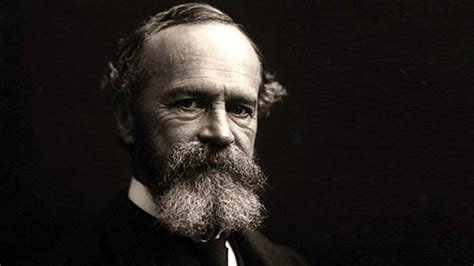
James The Greater
I was ambling along Gnostic Alley the other night when I spied an aged sign under a high arch: “William James, Psychologist.” I seemed to remember that he’d written something back awhile about religion. Maybe I should stop in for a bit of a chat….
It’s hard to give proper praise for one of the towering figures of American thought at the turn of the 20th century – or any other time. I’m staking this claim so far on a single work by James, The Varieties of Religious Experience, but it’s more than enough. How often do you encounter a perfect combination of style, thought and presentation, of science, philosophy and the deepest realm of the human mind?
In this 1902 enhancement of a series of lectures given in Scotland, you find a superb intellect at work presenting objectivity in the best sense – careful elucidation underpinned by an open mind and respect for personal difference.
If you crossed the forthright clarity of Brian Greene – today’s finest explicator of popular science – with Anthony Trollope’s love of comedy and delicious sense of appropriate beauty, you’d have something like James.
(For some ungodly reason, William has been largely overshadowed by brother Henry, whose turgid eloquence as a novelist could turn a fish inside out. William, by contrast, speaks with shimmering precision while still revolving his phrases on a slow spit over a very hot fire.)
Like Bertrand Russell in England, he came along at a time when respect for the embellished phrase still solidly underpinned most major writing, even as naturalism and scientific objectivity settled down from the top.

The Hot Squat
Say what you will about the gallows or the gas chamber, no method of state sponsored execution has a history, a mythology, or a vernacular quite as colorful and cinematic as Ol’ Sparky. Warner gangster films just wouldn’t be the same if Cagney and Robinson were facing lethal injection. There was a ritualistic, almost religious quality to the iconography of death in the electric chair—from the shaving of the leg and the sponge on the head to the loud hum and the flickering lights—you simply don’t get with more contemporary and humane methods of eliminating undesirables. And for this we can thank a dentist.
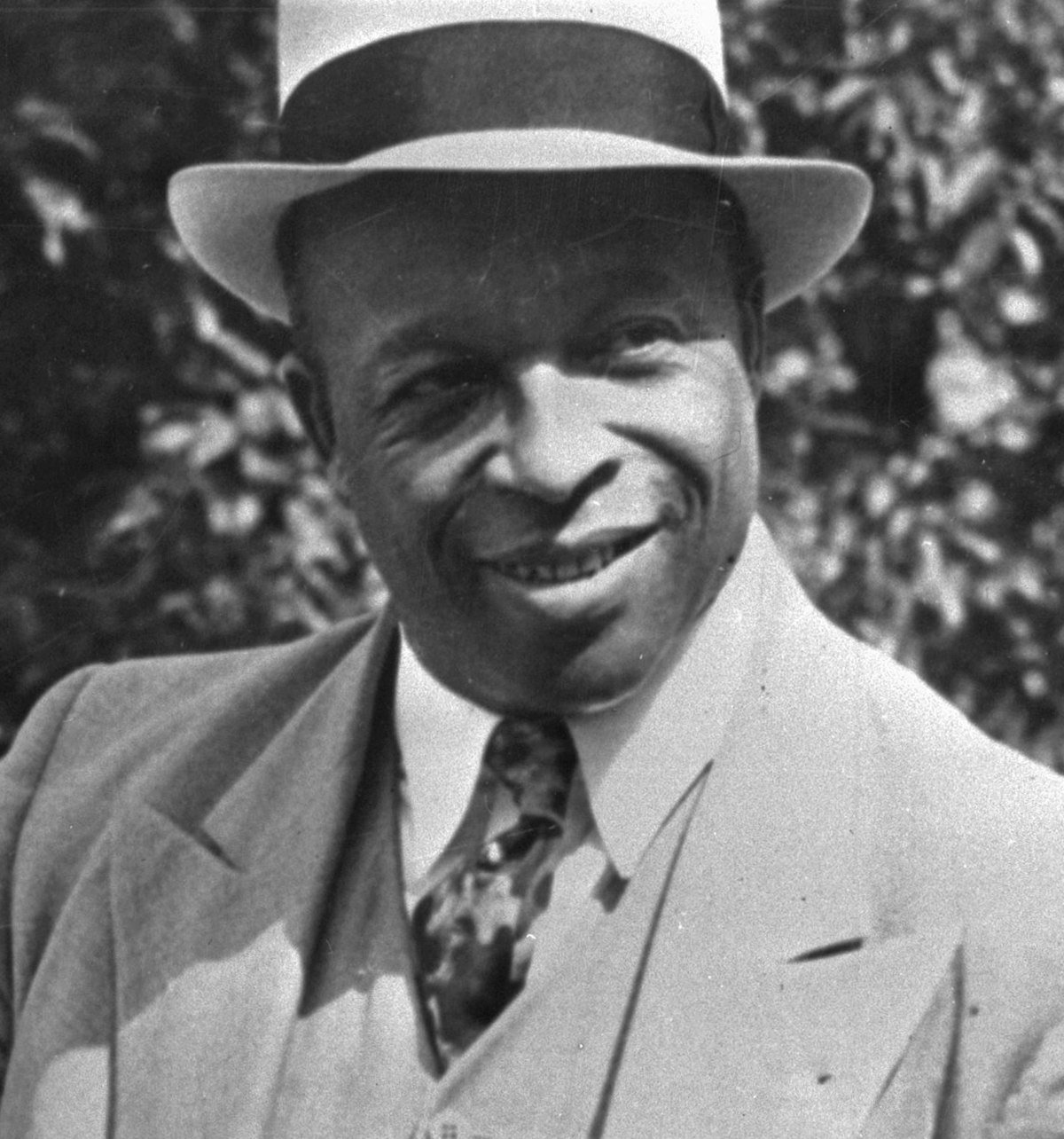
“John Doe”, Alias God
On September 13, 1936, a man who called himself God led a parade of three thousand “angels” over ninety blocks south from the Kingdom of Heaven at 20 West 115th Street in Harlem.
God sat in a vintage automobile while young ladies in jodhpurs, derby hats and vivid green sashes danced and chanted to the music of kazoo-players and upright piano. God later made a speech in Madison Square Park.
God went by the name Father Divine, who ran the Peace Mission Movement from a five-story headquarters where today stands the Martin Luther King, Jr. Towers. A sign outside declared: “The abundance of the fullness occupies the entire area of this office; therefore, there can be no loitering.”
Father Divine was a rousing preacher, owned vast real estate, forbade smoking, drinking and sex, and evaded several attempts at criminal conviction by white authorities. He arose from an errant root-and-branch pulpiteer living in the Pigtown waterfront ghetto of Baltimore, to buying a mansion in Hyde Park across the Hudson River from President FDR.
Harlem in the roaring twenties was a scene of artistic revolution, where Fats Waller smashed thirds and Claude McKay heard “the halting footsteps of a lass,” but in the 1930s the neighborhood was a theater of political awakening, where Communists, union bosses, black intellectuals and cult preachers vied for a voice on the squawk tub. Father Divine acknowledged support from the Communists, but with the caveat that “just what the Communists have been trying to get you to see and do and be, I have accomplished.”
God was born George Baker, Jr. in 1879, in Rockville, Maryland. His family shared a small cabin of fourteen people, including the family of Luther Snowden, the only black landowner in the county. White religion in the area was chiefly Catholic, Jim Crow laws were brutal, and the local black neighborhood was called Monkey Run. When Baker was 18, his mother Nancy, a former slave to a tobacco planter, died. She was five feet tall and weighed 480 pounds.
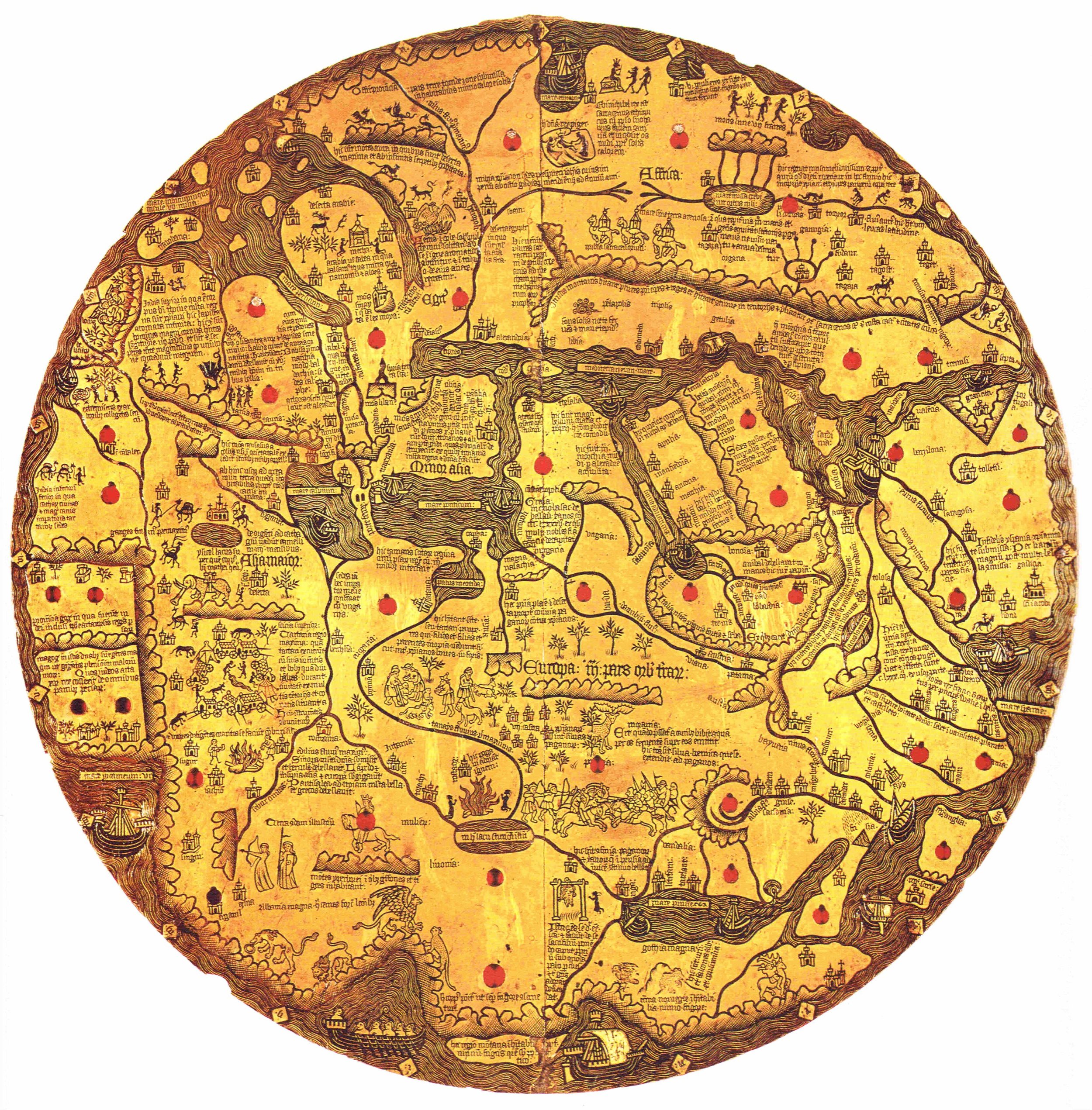
Israel’s War Is Not Just Against Hamas
At one time, the ‘Arab-Israeli Conflict’ was Arab and Israeli. Over the course of many years, however, it was rebranded. The media is now telling us it is a ‘Hamas-Israeli conflict’.
But what went wrong? Israel simply became too powerful.
The supposedly astounding Israeli victories over the years against Arab armies have emboldened Israel to the extent that it came to view itself, not as a regional superpower, but as a global power as well. Israel, per its own definition, became ‘invincible’.
Such terminology was not a mere scare tactic aimed at breaking the spirit of Palestinians and Arabs alike. Israel believed this.

Watch the Skies!
Two items remain, for now, on the agenda of All God’s Chil'ren:
First, we must kill capitalism. Whether by means fair or foul, few should deny that it needs doing. Next, if human life is to survive beyond the sun’s engorgement within the next six billion years, it has become imperative for mankind (which still means us) to establish a series of exo-planetary colonies – not unlike those luxurious Galt’s Gulch hideaways in outer space that, it is darkly rumored, our billionaire class has been busily planning to remove themselves to once life on earth gets truly hairy.
Of the two, the latter goal will be achieved first so, personally, I would settle for a modest, progressive shift in our labor markets. But even that objective, modest and progressive as it may be, is one helluva stretch in these United States.
When the AFL-CIO was founded in 1955, a decent chunk of salaried and wage-earning Americans, 35% of them, belonged to a union. When we contemplate our measly and steadily falling 10.5% unionization today, that 35% becomes nothing for anyone to sneeze at. Sadder still to contemplate are the 85% of American workers gamely attempting to survive on the mean streets of a shaky private sector, where an even less significant 6.4% currently enjoy the benefits of organized labor.
So what happens to the beleaguered American Worker as collective bargaining, the Royal Road to fair and dignified compensation for all, narrows into a glass-strewn footpath, flanked by razor-wire?
Stay tuned to this frequency …
by Daniel Riccuito
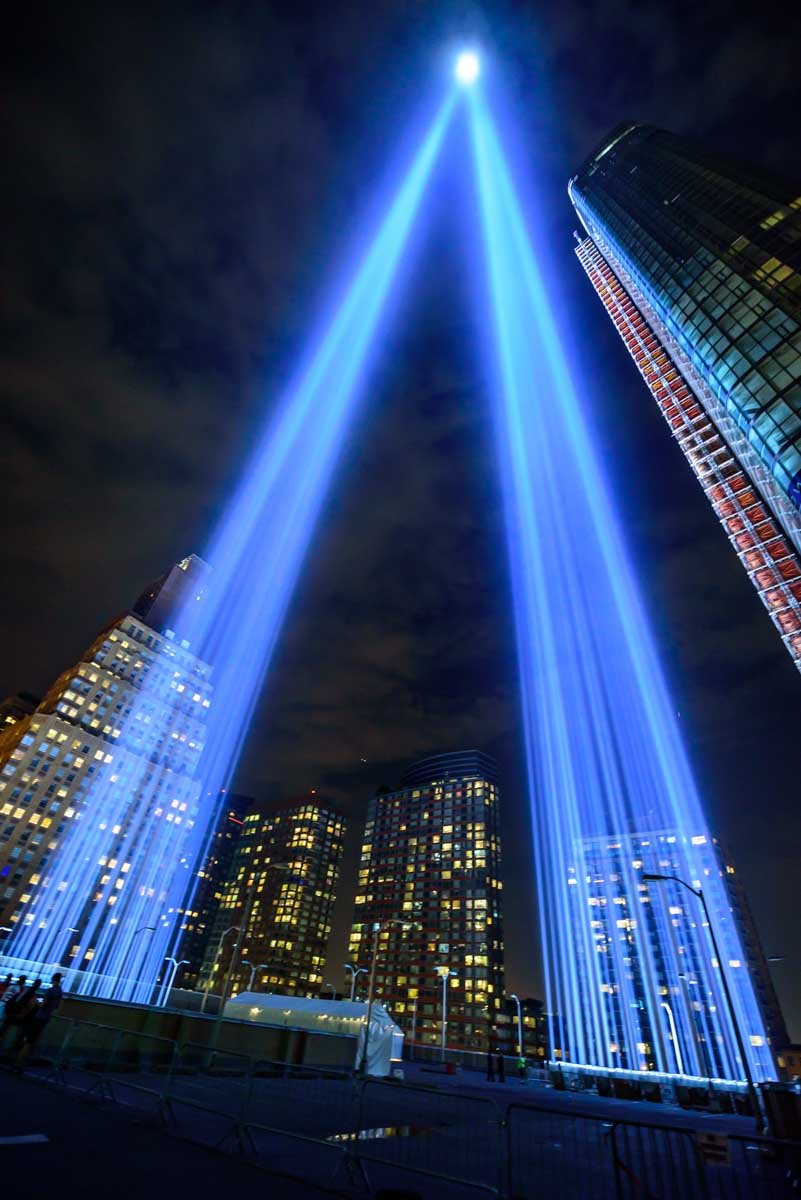
Their 911
Israel has been engaging in a project of ethnic cleansing against Palestinians since its inception. It waxes and wanes in intensity and speed, but is the necessary starting point of any discussion of Israel and Palestine, or of Palestinian uses of violence. We are currently watching Israel, in an eerie replay of post-9/11 bloodlust, launch a new chapter in this project. They are indiscriminately laying waste to homes, neighborhoods, and even against caravans of those refugees already fleeing the onslaught. North Gaza will become a new Golan Heights, a de facto annexed military zone of occupation. Just as 9/11 was quickly seized upon by the neoconservatives of the Bush administration to justify enacting the Project for a New American Century’s goal of “remaking of the world” (in Afghanistan, Iraq, etc.) for American hegemony, the hardline architects of a “Greater Israel” are no doubt seeing this as their time to push through their military and political goals.
What is particularly deranged in the US is how “this is their 9/11” is being used as a justification of this looming bloodbath rather than as an ominous warning of what a disaster for humanity this military blitz against a city of mostly children will be. Rather than a cause for temperance and self reflection on the relationship between colonialism and reactions to it, it is being discussed in mainstream tv and print media as a temporary period of impunity to, what, blow off steam? It speaks volumes of the lessons Americans have not learned about the moral calamities and character of their own political institutions. Of course, this ignorance is not endemic but is also the product of intense efforts at rewriting history.
by James Petrocelli
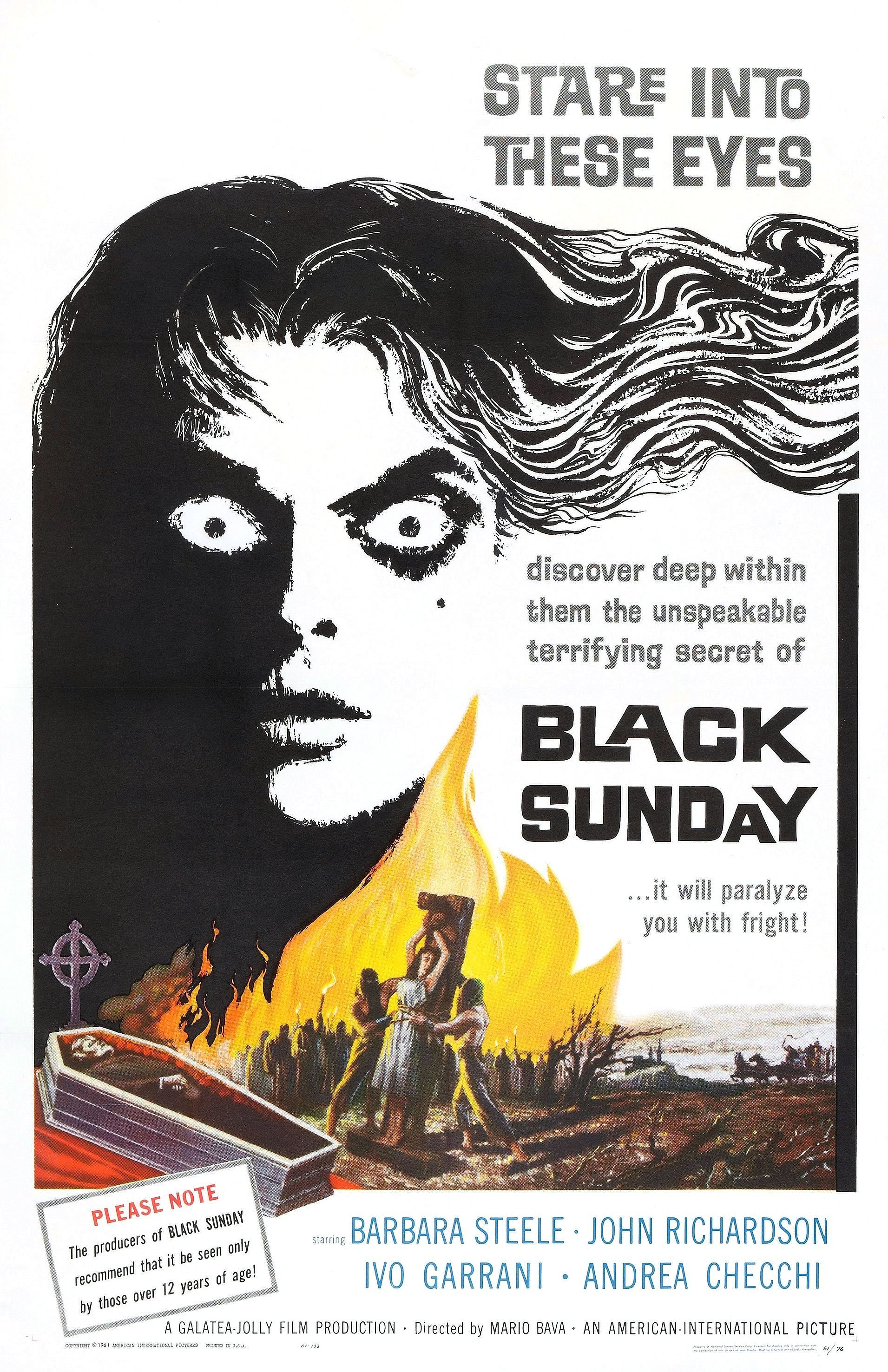
Italian Gothic Horror: A Word from Roberto Curti
The Chiseler: At the moment, I'm immersed in your wonderful book Italian Gothic Horror Films, 1957-1969. Gothic Horror has a particular resonance for you — or am I wrong to assume?
Curti: Well, it certainly is a fascinating field. I’m not particularly into horror cinema as of now, but I used to be. I remember watching the Corman/Poe films on Italian TV as a kid, and being blown away by them (particularly The Premature Burial). When I was a teen I became an avid horror movie collector, recording whatever I could catch on TV, and never missed a horror movie when it came out in my town. But at a certain point, let’s say early 2000s, I got fed up with the genre and stopped following every new release; I stil try to keep up to date but I can’t deny the fact that my tastes changed over the years, and now I’d more gladly revisit a film by Ferreri or Monicelli than pay the ticket to watch the new Insidious or Saw.
But Gothic horror, and in particular Italian Gothic, is an interesting field of research, for various reasons, relating to the Italian film industry, but also cultural and sociological ones.
The Chiseler: Regarding gothic-themed movies: are there any characteristics typical of Italian entries to the genre that distinguish directors like Bava, Freda and Cottafavi from their counterparts in other countries?
Curti: For once, it was some sort of lab experiment since there was no horror movie tradition in the country for several reasons, and many classic Hollywood horror movies (such as Browning’s Dracula) did not arrive in Italian theaters. so, Riccardo Freda’s I vampiri (which by the way is the subject of a monograph I wrote for PS Publishing’s Electric Dreamhouse series, coming out hopefully by the end of 2023) was a true novelty in the Italian landscape, so much so that it was ultimately tampered with and partly lost its original power. But what followed next, after the success of Hammer’s Dracula, was amazing: Bava, Freda, Margheriti, Barbara Steele, etc. The Gothic made in the 1960-1966 season, which we usually consider the heyday of Italian Gothic, had a neat Italian imprint. Even if they were products designed mainly for export, they revised the genre in such a peculiar manner that they are unmistakably Italian. You can see it in the details, and in the themes. A certain way of approaching the Fantastique, for instance: as Bava once famously said, Italian don’t believe in vampires, because the Mediterranean sun would chase them away. But Italians, in the late 1950s, were quite scared (and also intrigued, of course) by the way women were becoming emancipated while the patriarchal family was disintegrating. Take a classic from 1960, say La dolce vita, or Rocco e i suoi fratelli, and then La maschera del demonio: you’l see the same attitude. Marcello is spellbound by Anita Ekberg bathing in the Trevi fountain just like John Richardson is by the sight of Barbara Steele. In Visconti’s film, Renato Salvatori viciously stabs the woman he loves, a prostitute played by Annie Girardot, out of jealousy, because he can’t have her all for himself. And in Danza macabra the macho played by Giovanni Cianfriglia kills Steele’s character for a similar reason.
In Italian Gothic the female characters often mirror the male’s incapacity of going beyond the image of woman as an angel or a whore. The Gothic depicts a transgression, but it usually provides a return to order, a punishment, in line with the nation’s Catholic background. But at the same time it hints at the contradictions of a society that was rapidly changing, with the discovery of eroticism as a mass product and a (often naive) sexual curiosity that became one of the main drives in the film industry, while the grip of censorship were gradually loosening.

Seeing and Unseeing Violence in Palestine
Violence is horrible. Condemning the violent flashes of resistance from an oppressed and occupied people without first and primarily demanding an end to the greater forms of sovereign and structural violence that initiated and sustain that oppression is also profoundly hypocritical. It is a cry for peace in service of greater violence.
The Israeli state, its military checkpoint system, and its settler apparatus have been overtly murdering Palestinians at exponentially higher rates than anything Palestinians have done to them, and have done this every single year even outside of "wartime" (which is just a difference in degree of brutalization, rather than in kind) since its creation. This includes the casual murder of journalists, women, children, and the elderly, which news anchors in the U.S. suddenly care very much about. On top of this is the near-total economic collapse, resource theft, water shortages, food shortages, medical shortages, restrictions on movement, and other forms of structural violence intentionally engineered by Israel's policies that kill untold numbers of Palestinians every day (especially in Gaza), with or without the presence of Israeli soldiers.

Marlene Against the Wall
Dishonored was Marlene Dietrich’s second Hollywood film with her diminutive Svengali Josef Von Sternberg, but unlike Morocco, her first, it tanked at the box office. It’s difficult to see why, since it’s a more involving and dramatic work than the earlier film: maybe audiences turned out for the North African adventure out of curiosity, to see this vaunted new star in the Paramount firmament, didn’t enjoy the experience, and stayed away from her second venture into languor, exotic romance and tragedy?
The movie is essentially a re-telling of the Mata Hari yarn, with Sternberg providing the original (?) story. True, the leading man this time is a considerable step down from “long drink of water” Gary Cooper. Victor McLaglen does actually look surprisingly like a leading man here, for those who know him mainly as loutish comic relief in John Ford westerns. Until he grins. And he grins all the time. I mean all the time. It’s a manic, vulpine grin expressing explosive, demented self-satisfaction and projecting a barely-suppressed urge to tear apart his co-stars and the set walls with those pearly and seemingly filed-to-a-point teeth. I’ve shown his performance to students. “Who is THAT?” they all ask, terrified. “Why is he DOING THAT with his FACE?”

Teach Your Children Well
Fourteen years after the Soviet Union detonated its first A Bomb, twelve years after Arch Oboler ushered in the era of nuclear annihilation cinema with Five, four years after Stanley Kramer offered what was supposed to be the last word on the subject with On the Beach, a year after the Cuban Missile Crisis, and a year before Strangelove and Fail-Safe, Frank Perry made a little no-budget, no-frills picture that said more about the real psychological toll of the Cold War than any other film in the very crowded subgenre of nuclear annihilation films, and said it more powerfully. And all without a single mushroom cloud. Not surprisingly, 1963’s Ladybug, Ladybug, his existentialist bummer of a film was ignored at the time and remains all but completely lost and forgotten today.
Perry’s first feature, 1962’s David and Lisa, was a sincere and emotional melodrama about a mentally unbalanced teen who finds true love in the asylum. Things took a much bleaker turn in his second feature, though given the prevailing atmosphere you can understand why.
The plot is deceptively simple, and at times can feel like an extended episode of The Twilight Zone. When the Civil Defense alarm begins blaring unexpectedly in the main office of a small rural Middle American grade school, no one knows what to make of it. The scheduled weekly alarm test had taken place a few hours earlier, which means this new siren is either a false alarm resulting from some mechanical glitch, or an honest-to-god warning the missiles were on their way and would strike in less than an hour. Tensions are only ramped up when all the phone lines to all the authorities who could set the matter straight are tied up. There was nothing about the impending apocalypse on the radio, but maybe word simply hadn’t gotten out yet.

